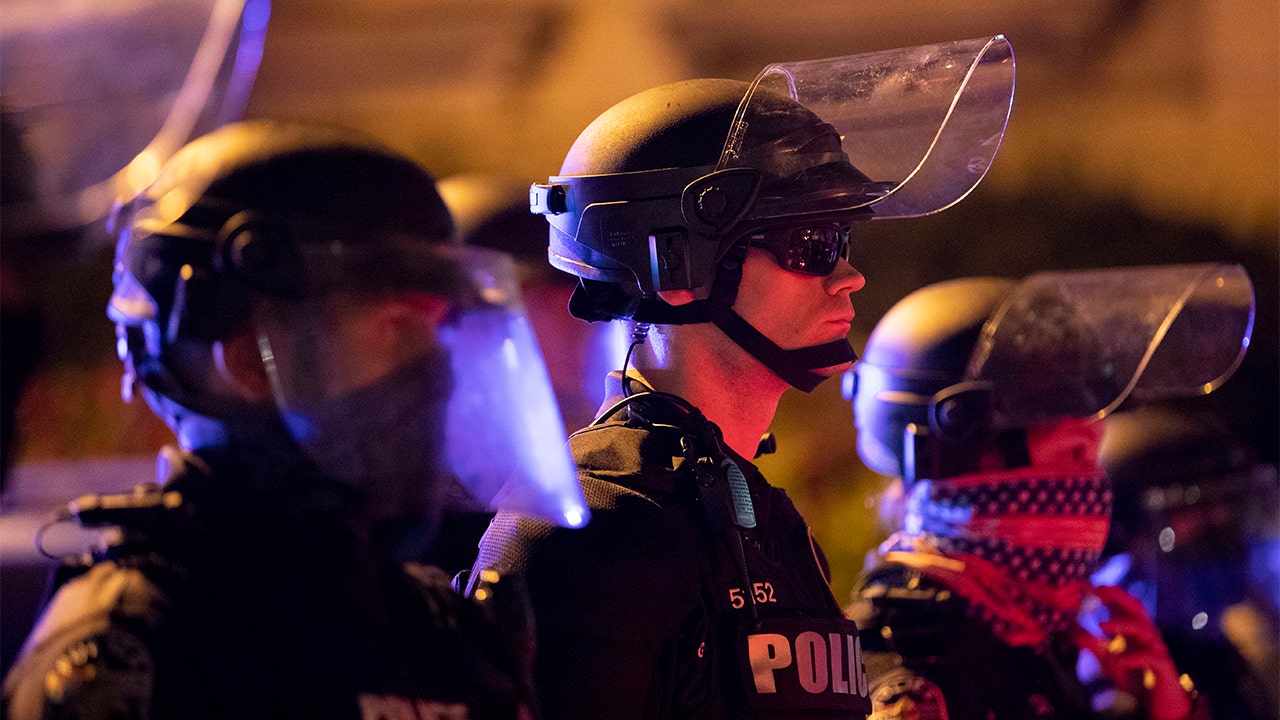United States
DOGE scrutiny could ‘take handcuffs off’ police officers to do their jobs: expert

The establishment of the Department of Government Efficiency (DOGE) by President Donald Trump has sparked significant discussion about its potential impact on law enforcement agencies across the United States. According to Joe Cardinale, a retired lieutenant commander from the New York Police Department (NYPD), DOGE’s role in scrutinizing the federal budget, including grants allocated to police departments through the Department of Justice, could bring much-needed relief to law enforcement agencies that have been burdened by heavy oversight from lawmakers. Cardinale, who now serves as an advocate for police reform, believes that DOGE’s efforts to identify wasteful government spending and make necessary cuts could help restore the effectiveness of policing by allowing officers to do their jobs without unnecessary constraints.
Cardinale emphasizes that one of the primary challenges facing police departments today is the restrictive oversight imposed by lawmakers, which he claims has handcuffed officers and limited their ability to perform their duties effectively. He calls for a more balanced approach that includes stricter accountability for federal funds allocated to police departments. “Maybe we can give it a one-two punch,” he suggested in an interview with Fox News Digital. “Maybe we can start setting the standards a little better to allow better candidates to come in and take the handcuffs off the police.” By scrutinizing how federal grants are used and ensuring that they are allocated wisely, Cardinale believes that DOGE can help policing return to its core mission: serving and protecting communities.
One of the key issues Cardinale highlights is the removal of qualified immunity for police officers, a legal protection that once shielded them from lawsuits unless they willfully violated someone’s rights. In 2021, during the height of the Black Lives Matter protests and riots, the New York City Council passed a series of reforms that ended qualified immunity for officers in the city. Cardinale argues that this move has had a chilling effect on law enforcement, discouraging officers from taking proactive measures to maintain public safety. “They took it away,” he said. “The city once said, ‘You do the job, and we will back you up.’ Now, they don’t have that any longer.” This lack of support, Cardinale contends, has contributed to a crisis of confidence within police departments and has made it harder to recruit and retain qualified officers.
The staffing and retention concerns plaguing police departments across the U.S. are a major focus of Cardinale’s advocacy work. He believes that additional scrutiny of police departments, combined with stricter accountability for federal funding, could help address these challenges by reconnecting law enforcement with its fundamental purpose. “Take the handcuffs off, and get back to some proactive policing,” he said. By ensuring that federal grants are used effectively, DOGE could help police departments improve their operations and rebuild trust with the communities they serve. For instance, funding could be allocated to address staffing shortages, increase officer salaries, and upgrade outdated equipment. These changes, Cardinale argues, would not only improve public safety but also make policing a more attractive and sustainable career path for young recruits.
The Los Angeles Police Protective League, a police union representing over 8,000 Los Angeles Police Department officers, has weighed in on the issue. The league advocates for “common-sense” reforms to improve public safety, including redirecting federal funds toward initiatives that address critical issues such as staffing shortages and outdated equipment. “If these funds are redirected to public safety, they will pay dividends in the form of safer neighborhoods and fewer fentanyl deaths,” the league told Fox News Digital. “We believe this is a wise investment.” Cardinale echoes this sentiment, arguing that a more efficient and focused allocation of federal grants could have a transformative impact on law enforcement.
In conclusion, the creation of DOGE and its focus on identifying and addressing wasteful government spending presents an opportunity to reform how federal funds are allocated to police departments. By ensuring that these funds are used wisely and effectively, DOGE could help law enforcement agencies across the U.S. overcome the challenges of heavy oversight, staffing shortages, and outdated resources. Cardinale and other advocates believe that this effort could not only restore the effectiveness of policing but also help rebuild trust between law enforcement and the communities they serve. While DOGE’s work is still in its early stages, its potential to bring about meaningful change is undeniable. As Cardinale put it, “We need to get back to policing that says, ‘We’ll have your back 100% as long as you do the job properly. And if you step out of line, we’re going to hold you accountable.’”


















